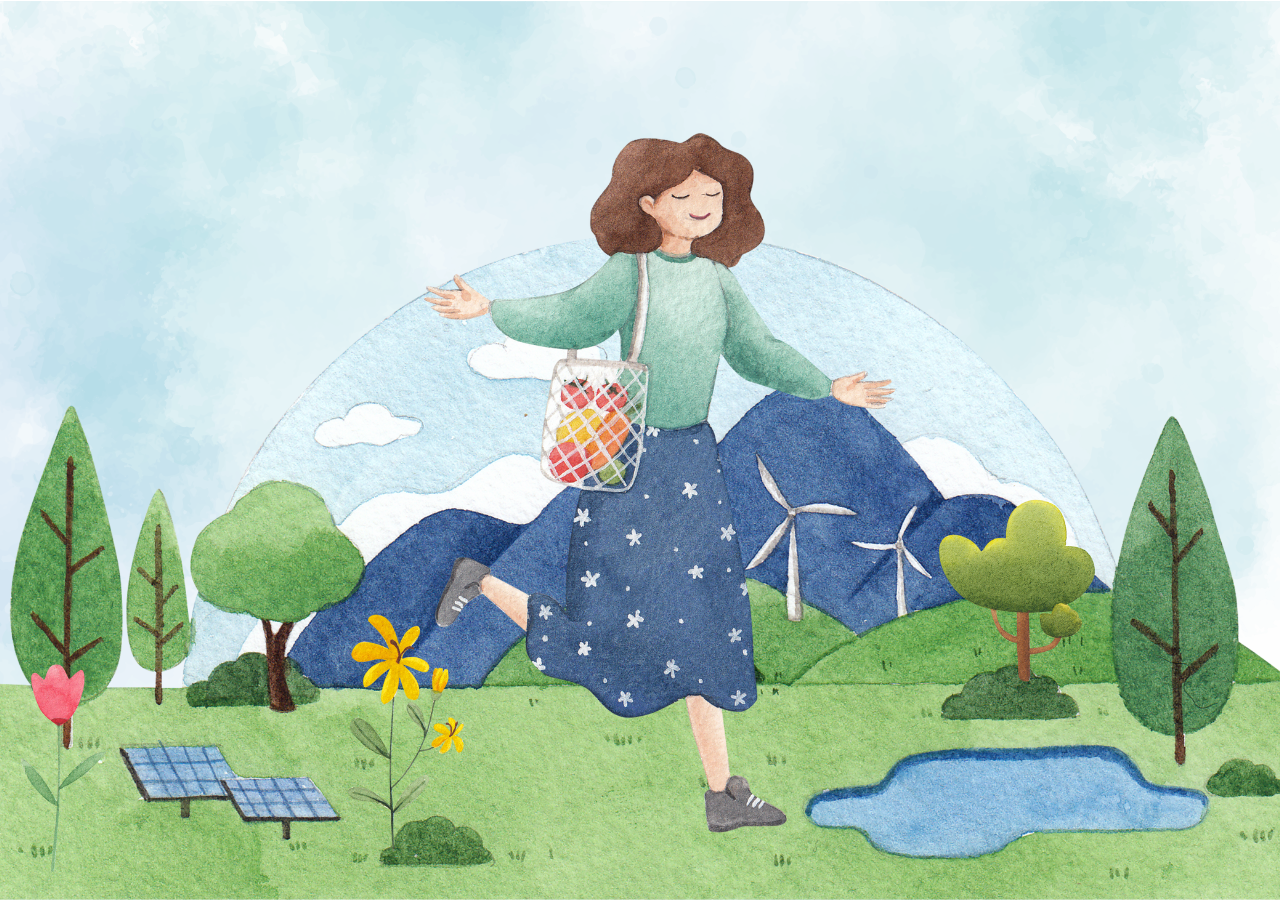As responsible stewards of Allah’s creation, and in keeping with the ethics of Islam, we must take responsibility not only to care for our environment but, as suggested by Mawlana Hazar Imam on many occasions, leave the world in a better condition than we found it.
Each one of us has the agency to make a positive difference, but to fully comprehend the effects of climate change on the world, we must first understand the role of greenhouse gases and the phenomenon of global warming.
The greenhouse effect:
Let's start by understanding the greenhouse effect. Imagine Earth as a giant greenhouse with a glass roof. Gases in the atmosphere, like carbon dioxide, act like the glass roof, trapping heat from the sun. These gases are called greenhouse gases. Without them, Earth would be much colder. However, due to human activities, the concentration of greenhouse gases has increased, causing a phenomenon called global warming.
Global warming:
Over the past century, the amount of greenhouse gases in the atmosphere has risen significantly. This increase is primarily caused by activities such as burning fossil fuels and deforestation. The rise in greenhouse gases, particularly carbon dioxide, leads to the trapping of extra heat and a rise in global temperatures. As a result, our planet is now about 1.1°C warmer than it was in the 19th century. This rise in temperature is called global warming.
What is climate change?
Climate change refers to long-term changes in temperature and weather patterns. It can affect specific locations or the entire planet. Due to climate change, weather patterns become less predictable, leading to events like more intense hurricanes, floods, and storms. In polar and mountainous regions, global warming causes ice sheets and glaciers to melt faster, which contributes to rising sea levels and increased flooding and erosion in coastal areas.
The impact of climate change:
Climate change has various impacts on our planet and its inhabitants. Rising temperatures affect wildlife and their habitats, causing shifts in migration patterns and threatening certain species. Additionally, climate change influences precipitation patterns, resulting in more severe droughts and increased risk of wildfires and crop losses, which negatively affects humans around the world every year. Some species, like mosquitoes and crop pests, thrive in these changing conditions, creating additional challenges for ecosystems and agriculture.
Climate injustice, loss, and damage:
Climate change affects different regions and communities differently. While some countries have historically contributed more to carbon dioxide emissions, developing nations often face the harshest impacts without having significantly contributed to the problem. Extreme heat waves, floods, and economic hardships disproportionately affect these countries. It is important to recognise the need for global cooperation and support to address climate injustice and mitigate loss and damage caused by climate change.
In a speech at the Aga Khan Award for Architecture Winner’s Seminar in 2016, Mawlana Hazar Imam expressed his concerns about the changing climate:
“I am also worried about the process of warming. We are beginning to see, in many parts of the Muslim world,” he said, “how warming is beginning to create situations where life is at risk, where it was not at risk before. We are seeing villages that are being wiped away by earthquakes, by landslides, by avalanches.”
What can individuals do?
“The actions we take as individuals can seem small relative to the scale of the problem, but large-scale change typically becomes possible only when many individuals share common values that stem from everyday experiences,” said Prince Hussain to participants of the AKU President’s Challenge for Climate Solutions last year.
While climate change is a complex issue, every individual has the power to make a difference. Here are some actions parents and children can take to address climate change:
-
Reduce energy consumption: Turn off lights and electronics when not in use, unplug chargers, and use energy-efficient appliances.
-
Conserve water: Encourage shorter showers, fix leaky faucets, and water plants efficiently.
-
Plant trees: Trees absorb carbon dioxide and provide shade, helping to mitigate climate change.
-
Practice recycling and waste reduction: Teach children about the importance of recycling and reducing single-use plastics.
-
Use sustainable transportation: Walk, bike, or use public transportation whenever possible, reducing greenhouse gas emissions from cars.
-
Support renewable energy: Learn about and advocate for clean energy alternatives like solar and wind power.
-
Educate others: Share your knowledge about climate change with friends, family, and classmates, inspiring them to take action too.
Climate change is a significant issue that affects us all. By explaining its causes and impacts to our children, we empower them to become informed and engaged stewards of the environment. Encourage your children to take small but meaningful actions to mitigate climate change, reminding them that their individual efforts, combined with those of others, can make a real difference. Let’s work together to fulfil the trust of stewardship that Allah has granted us.
--
Laila Hudda is an Environmental Engineer at the US Environmental Protection Agency based in Altanta, Georgia.








